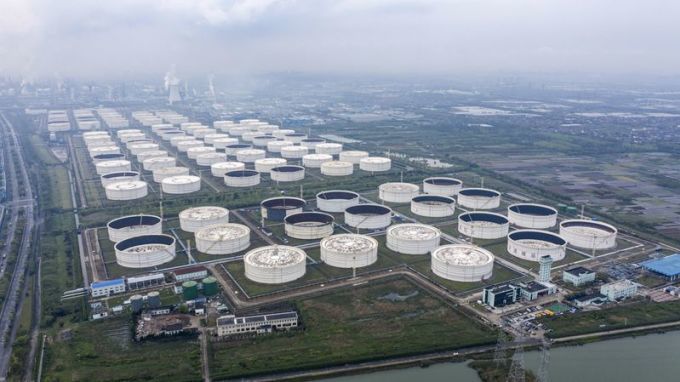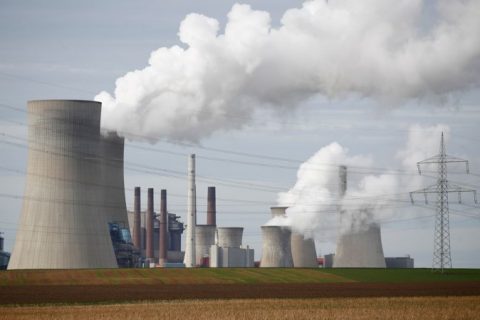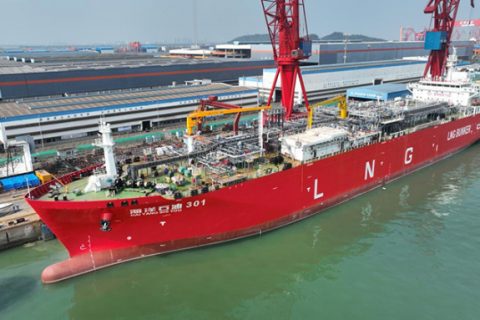The war in Ukraine is reinforcing Asia and the Middle East’s role in the global supply of gasoline and diesel.
As the US and Europe seek to reduce their use of Russian oil products, they face a domestic supply shortage. This opens up opportunities for large refineries in places like China or Kuwait.
“In turning away from Russian oil, Europe and the US are increasingly dependent on oil from the Middle East and Asia,” said Eugene Lindell, director of oil products at consulting firm FGE.
Russia’s opening of
a military operation in Ukraine hastened this. Especially after Western countries drastically reduced refining capacity in recent years, Asia expanded this activity.
Over the past three years, Western countries (including the US and Europe) have reduced their refining capacity by 2.4 million barrels a day, FGE said. Meanwhile, Asia and the Middle East increased by 2.5 million barrels.

Oil storage tanks in Zhejiang (China). Photo: Bloomberg
This gap is expected to increase further. Rystad Energy thinks refining capacity of about 8 million barrels per day will be added over the next three years. Leading the increase is Asia.
“Asia and the Middle East are increasingly becoming the world’s fuel supplier,” said Mukesh Sahdev, director of refining at Rystad. The flow of oil from the East to the West “will become more and more structured”.
The shift in the global refining industry has been accelerated during the pandemic. At that time, old factories were closed as a global blockade policy suppressed oil demand. At the same time, however, China is putting into operation larger and more complex plants to meet rising domestic oil demand. The US and Europe have recently focused on moving away from fossil fuels.
Victor Shum, deputy director of energy consulting at S&P Global Commodity Insights, said that the consumption of fuels such as gasoline and diesel in the US and Europe will be saturated before Asia. Many new refinery projects in Asia are also designed to meet the expected increase in petrochemical demand there.
The launch of Russia’s military campaign in Ukraine and subsequent sanctions by Western countries has surprised global energy markets. Energy security is now a top concern for countries that do not have enough refining capacity.
“European governments and citizens are beset by high inflation and skyrocketing electricity prices. So now they’re prioritizing the next few years over 2040-2050,” Lindell said.
The West is feeling the pressure from refinery cuts. Diesel inventories in north-west Europe are falling and will reach their lowest level this year, according to Wood Mackenzie’s forecast, as the EU reduces its imports of Russian fuel by sea.
Meanwhile, US President Joe Biden is considering forcing oil companies to store more fuel in the country. Gasoline shortages could worsen as we head into the summer driving season next year, Sahdev said.
In Latin America, countries are also increasingly dependent on imports as Caribbean factories close. Mexico is actively collecting gasoline from China.
The United States is still the largest exporter of diesel oil in the world. Energy security efforts can help reduce shortages. However, analysts do not see the possibility of the gap closing anytime soon.
“We should have a more realistic energy policy. The fossil fuel exit plan is still there. But the priority right now is in the short to medium term, rather than the long term,” concluded Lindell.
Ha Thu (according to Bloomberg)
Source: Vnexpress





